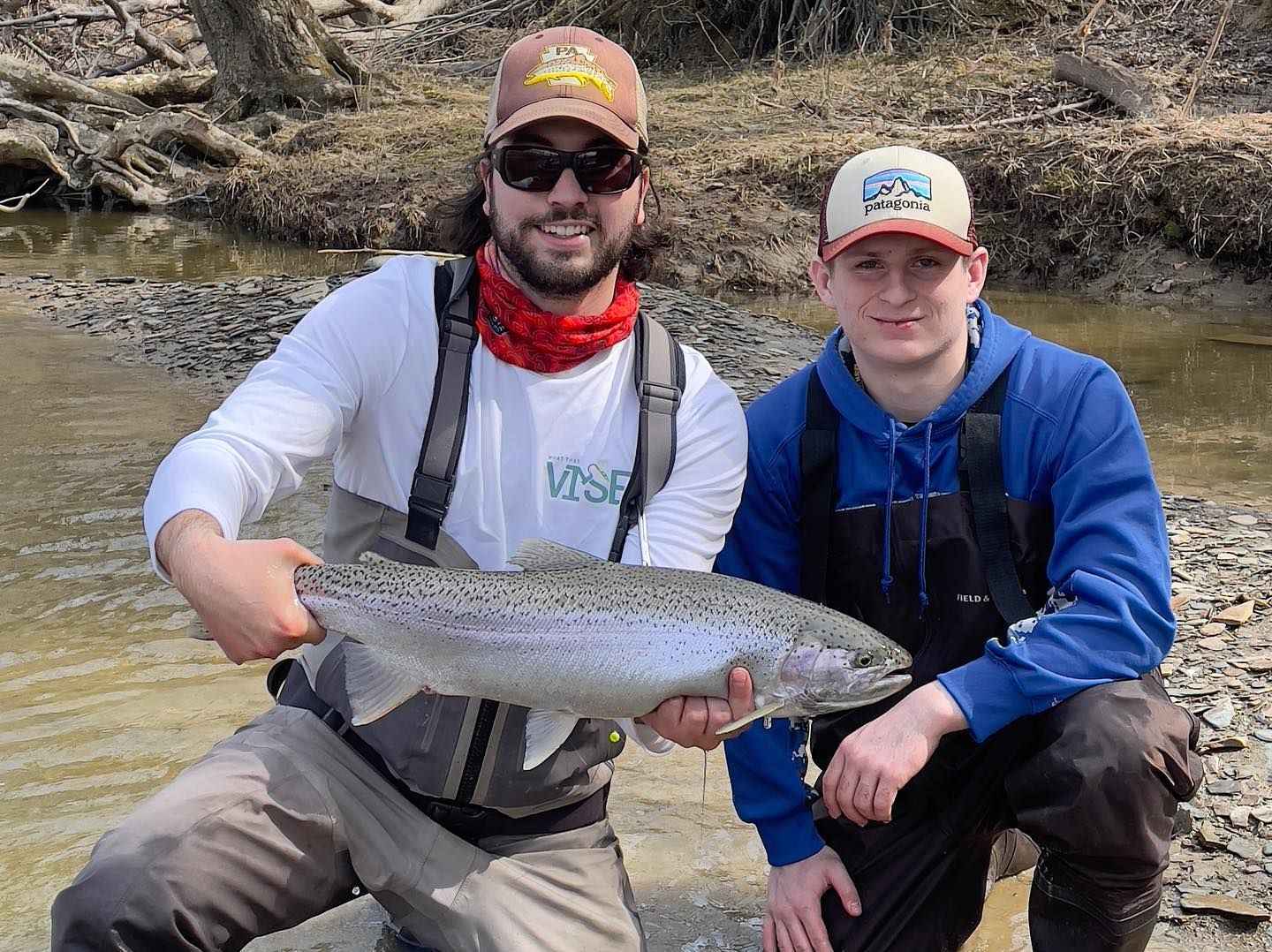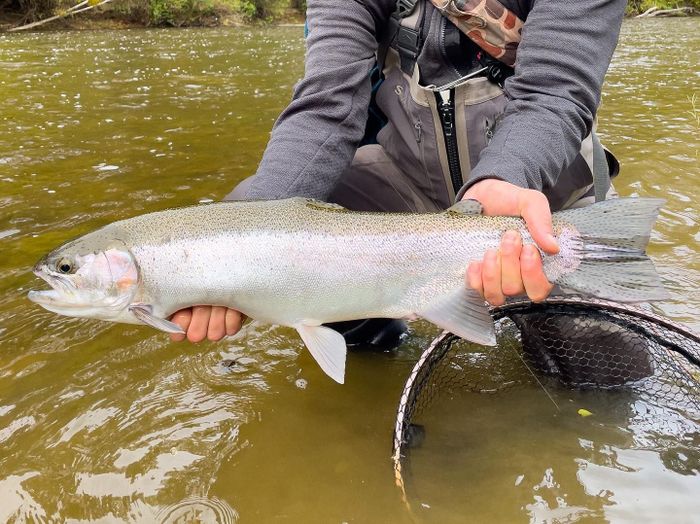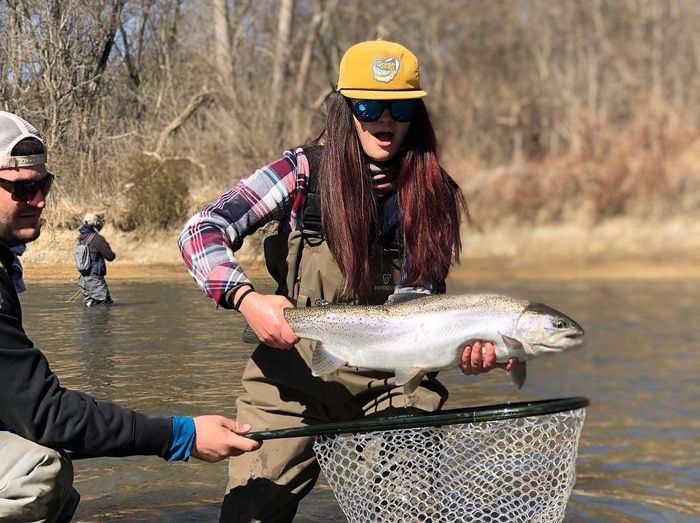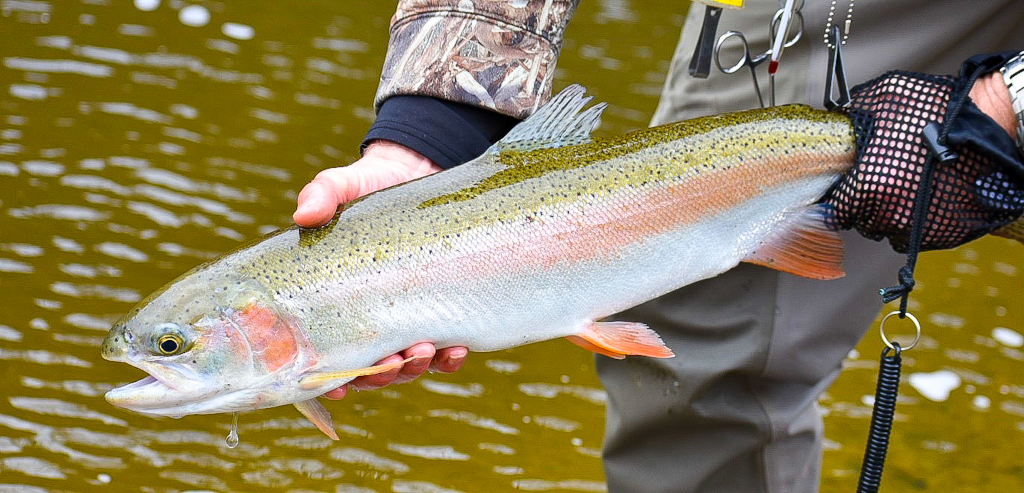From One Angler to Another
Captain Lucas Smith shares valuable advice to aspiring anglers, especially those who are considering going down the path less traveled.

As a fishing guide, one approach to becoming a better angler is to get out on the lake more frequently to gain experience. Fishing is not as easy as you think, but there are some tips that I would like to share with you, having already gone through that path.

Whether a novice angler or a seasoned pro, you can always learn something new from other anglers, so it pays to locate a few smart individuals to fish with occasionally. A nice spot to begin a conversation with like-minded anglers and find prospective new fishing partners is your local tackle shop. Joining a fishing club and then approaching some more seasoned members is an additional choice. Don't be aggressive when expressing your desire for tutelage. Get to know your fellow club members and allow information to flow organically. Keep your eyes and ears open whenever you go fishing with anyone and find ways to connect with them, like on Facebook or Instagram.
I always tell guests of What That Vise Do not to wait for a clear sky and a quiet wind to get out on the water; good anglers catch fish in all types of weather. While fishing in terrible weather is not necessary, developing the ability to handle any challenges that mother nature may present is crucial. Find an island's lee, a towering shoreline, or a jetty that provides some protection if the wind is too strong.

As I have often fished at popular spots like Steelhead Alley, One of the most common mistakes to avoid is waiting to begin rigging your equipment until you arrive at your first fishing location. That results in lost time and frequently missed chances. To make any necessary modifications on the water quick and simple, get all of your rods and reels ready, tie your leaders in advance, and maintain your lures and terminal tackle in plenty, good condition, organization, and reach. Make a checklist to ensure that you don't forget anything important. If purchasing baitfish is a part of the strategy, leave earlier to provide extra time to visit a bait shop.
When you go fishing, things rarely turn out precisely as you anticipate. It's a good idea to have backup plans because unanticipated events like a sudden weather change or a shortage of live bait regularly compel anglers to abandon their best-laid plans. Carry the tackle and bait you'll need to be successful even when the originally targeted game fish do not cooperate and you are forced to focus on other targets since you may not be able to fish in a certain area.

No matter how successful they have been in the past, fishing the same few areas consistently will eventually catch up with you. You'll ultimately discover that other anglers arrived early, particularly on weekends and holidays, or that the weather made your dependable fishing spot unfishable. It's far better to frequently explore new regions and resolve to visit at least one new location each time you go out. When looking for potential areas to attempt, the main criteria to consider are water temperature, movement, clarity, and the presence of forage.
The best angler keeps up with these changes in fishing equipment and methods. Don't be so set in the ways that you won't experiment with new lures, discover a more effective technique to rig a bait or tie a leader, or ignore a strategy that is becoming more and more common. Even if they come from younger anglers, keep an open mind and be sensitive to new ideas. Those who concentrate on a certain target species or fishing strategy are typically the ones who fine-tune a rig or develop a new specialized technique, even if they lack general fishing expertise and experience.
Too many anglers become so preoccupied with fishing—catch and rig baits, anchor in the ideal location, make the perfect cast—that they neglect to take notice of their surroundings. You can only gather information from watching and listening if you want to be able to make the necessary corrections to ensure a good day on the water. In addition, no angler should forget to do their part in conserving the water bodies they fish in.
Don't presume you are an expert on your preferred game species or fishing techniques. Keep abreast with new tactics, tackle, fishing destinations, and recently found fisheries.

Although most fish are opportunistic eaters, they do not always consume. Anglers must expect periods of quiet between these periods of intense feeding activity, typically ignited by the correct tide stage or specific weather circumstances. Action decreases for many hours in the summer when water temperatures frequently rise during the midday hours beyond the tolerance limit of many species. When that happens, some anglers quit, while others stay around at their preferred location until the next feeding time.
The more prosperous ones, however, learn to anticipate when and where the fish will eat again and plan to be in the right place at the right time to cash in. They also know to stay vigilant when the bite slows down, so they won't lose many opportunities. However, when food is particularly plentiful, such as during shrimp runs or baitfish migrations, game fish tend to feed irrationally, disregarding the tide, temperature, or circumstances.
Keep your eyes on the target and keep other crew members away while casting. After hooking a few fish, check the hook points and leaders for chafing. Immediately after use, store gaffs and knives safely away. Keep buckets, tackle boxes, and other potential obstacles out of the cockpit or casting deck where they could trip you or other crew members while you're fighting a fish.
I would tell aspiring anglers to realize that this is a lifetime sport. You don't have to know everything in the first week when learning to fly fish. Some of your journey's most memorable experiences will come from making decisions on your own while at sea. I'd advise you to go out with a guide or find a local introductory lesson offered by your neighborhood fly shop if you want to shorten the learning curve.
Start your fishing journey with us here.




